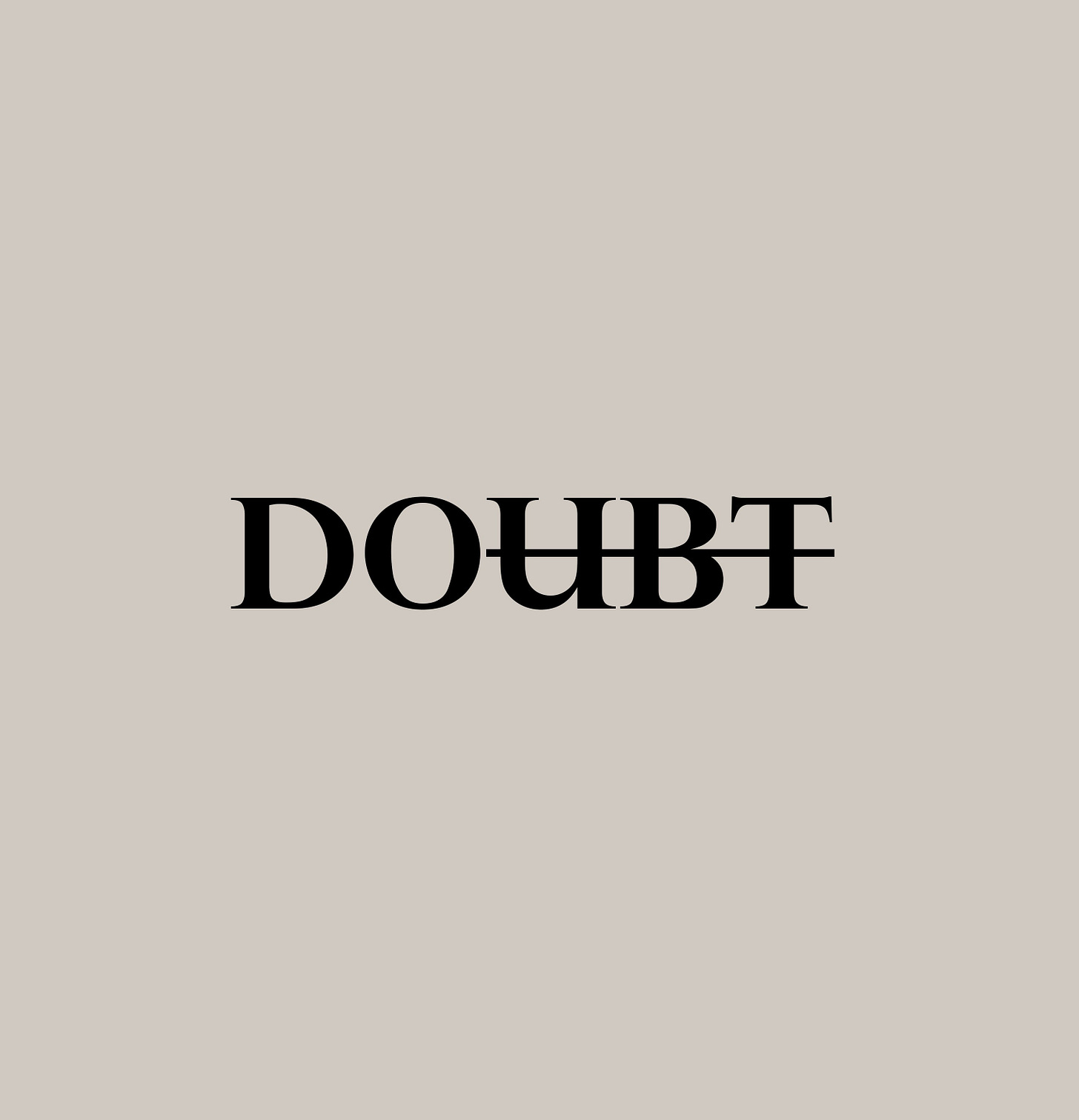Self-mastery Nº65
You Are What You Do

The New York Times put out an article recently titled “Remember: What You Do Is Not Who You Are”, which was an interesting take—though I disagree. To me, we are what we do, and that’s fine. Because it can change whenever and however we want.
As kids, adults loved to ask, “So, what do you want to be when you grow up?” Then, when we grow up, adults ask further, “So, what do you do?”
Many people live trying to desperately oscillate between their professional and personal lives, thinking that it’s paramount to separate the two. And on the outside, they also believe that our professions depict everyone’s impression of who we are. There is a decent reason for this: our careers give us a better sense of purpose. People often want to paint the picture of someone in either black or white—never both. But that’s not possible. Our identity in its purest form blends into the colour grey, yet people persuade us to visualise it all in either black (our professional identity) or white (our personal identity).
You can’t easily separate the two. Yes, you can draw a line between them from an emotional standpoint. But the blend is much richer when it comes to who you are.
If you have children, do you stop becoming a parent once you step into work? Your occupation—whether you want to acknowledge it or not—does not cease to exist either. Trying not to identify with what you do creates needless anxiety, which has already been spearheading the current $38 billion global personal development industry. We hardly need more workshops on how to split our work and personal life better.
We can’t stop it from being a part of us. We spend an awful lot of hours at work—around 1/4 of our adult lives. Then, the mindset and physical habits we adopt from work and the people at work tend to make up a staggering portion of who we are.
When I look back at the decade or so I was at school, I can frame the impact those years had on me, how those years decided my friends, pursuits, skills, anxieties, and everything else. If I can be aware of how those years affected my growing identity, then what is the significance of our working lives on our adult identities?
How we spend our days is, of course, how we spend our lives. What we do with this hour, and that one, is what we are doing.
— Annie Dillard
In a way, our identity is like an iceberg. We see the mere tip that protects what lies beneath the surface, that which holds us together. It’s a frustrating concept as what exists below often combines a personality, talents, desires and values.
But our job and work environment do constitute a large part of our identity. Deny that, and you’re setting yourself up for psychological distress. Why not accept, in fact, that we are what we do. Because the beauty of it is that what we do can change, and we’ll change with it. We are always a multitude of things. Who we are is what we do and what we do can change. Our identities are malleable in that way.
What I’ve Learned This Week
Recreation is re-creation
Leisure and time in nature have quite the antidotal effect. Few people spend enough time “switching off” through recreational activities, and even fewer ever get the most out of it. I’ve been using walks and bike rides in nature for almost a decade to re-create myself, to help me at a time where I was often feeling drained, angry, anxious, resentful. I used exercise to discover myself and change that. It gives me the time to think through myself and my circumstances. If we want to be healthier, happier and more productive, recreation solves it in one.
What’s on My Mind
To be remarkable: pick one thing, learn from the best, and then do it better.
Explore
Timeless Quote
You are going to make mistakes — own them, make amends, and move on. Guilt and regret kills many a man before their time. Turn the page, get off the ride. YOU are the author of the book of your life. Turn the page.
— Matthew McConaughey
— —
Brain Food
“Many of the people I spent my time with were negative, judgemental and harsh thinkers. What came from their mind to their mouths most of the time was venomous. (…) But it wasn’t something I confronted because I just wanted to be accepted and appreciated. This propped another sign to show just how disconnected I was with myself; what I said, thought and did never matched — and this was something I struggled with.”
→ To Live a Happy Life, Look After Your Inner and Outer Worlds
— —
Favourite Things This Week
A lot of people are weak in the same place
Speak again soon.
Joxen


